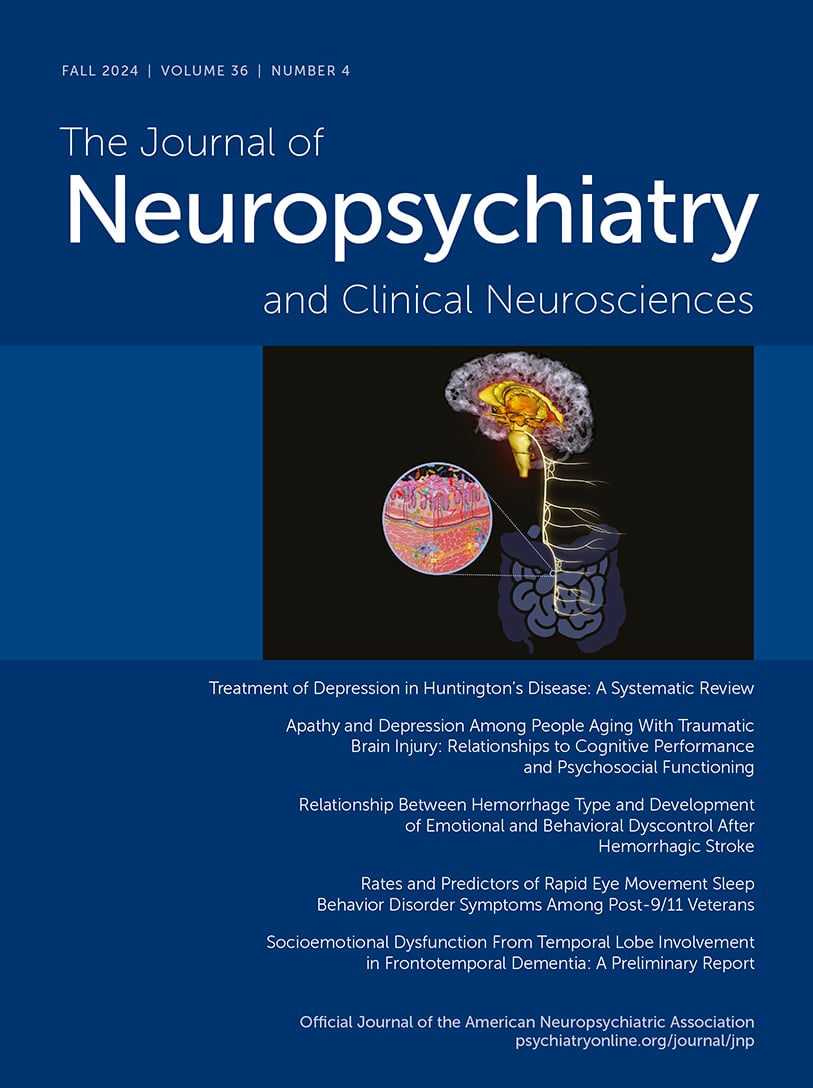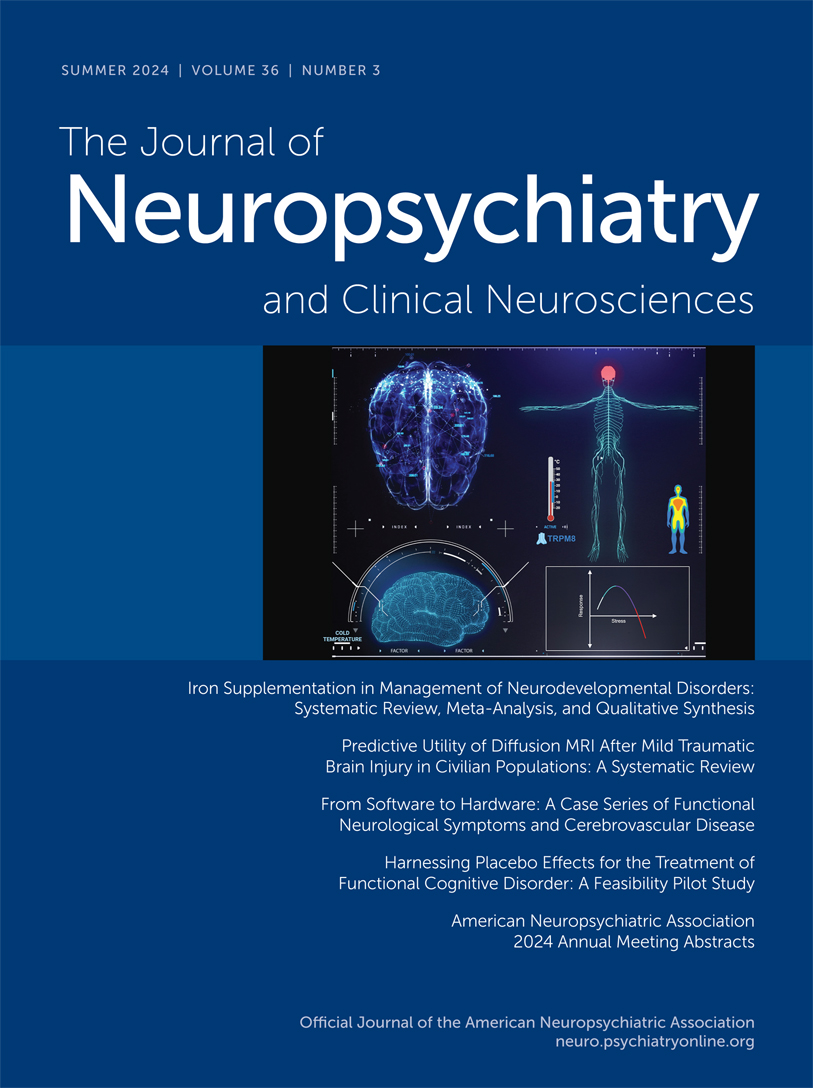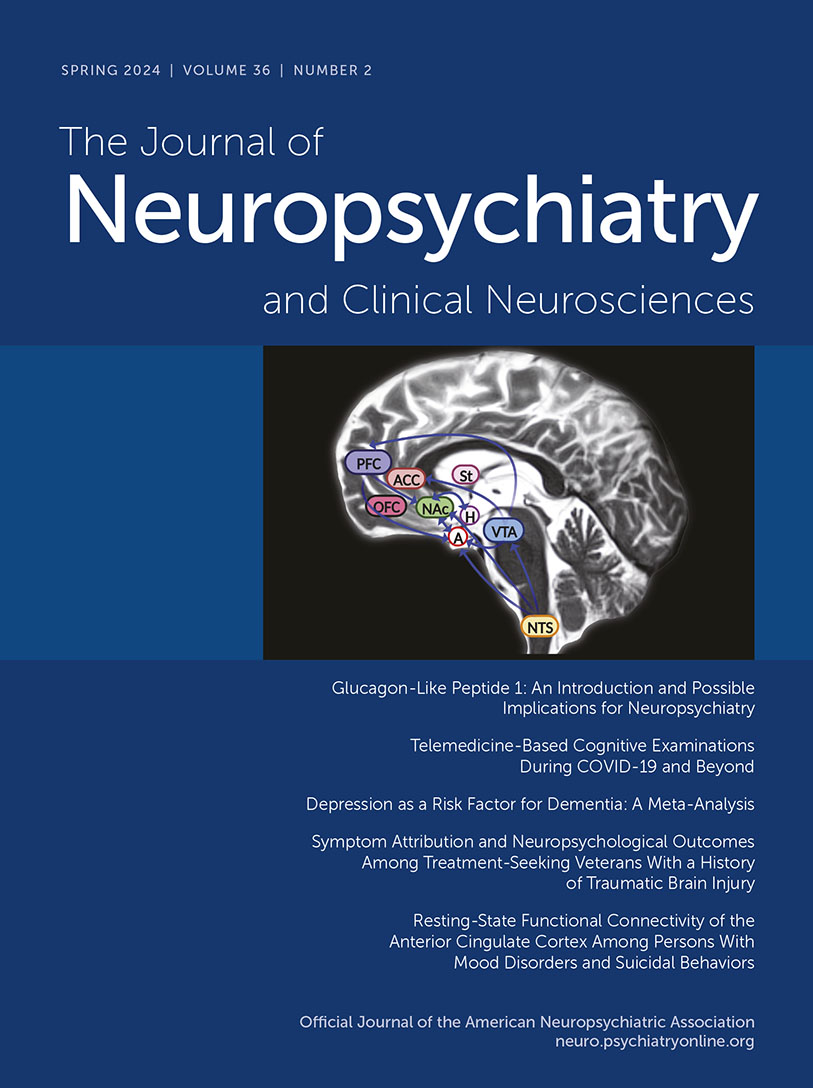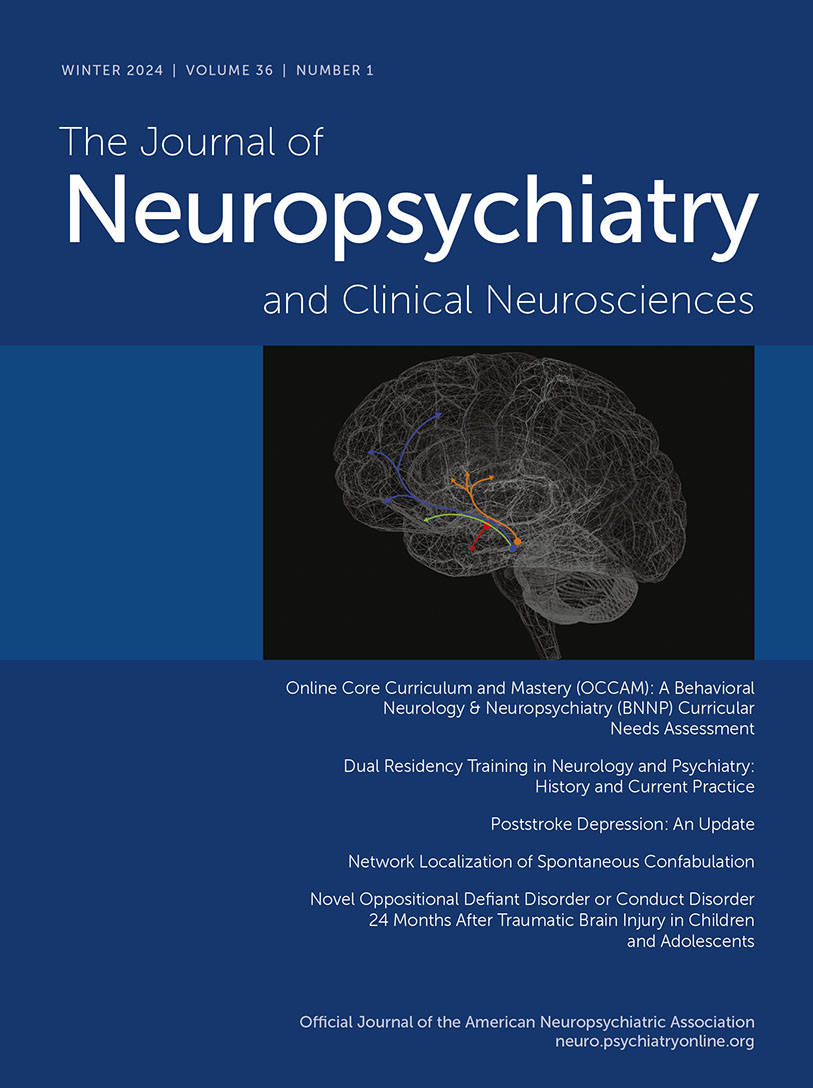The Journal of Neuropsychiatry and Clinical Neurosciences
- Volume 34
- Number 4
- October 2022
Windows to the Brain
Clinical Case Conference in Behavioral Neurology & Neuropsychiatry
Special Articles
Publication date: 17 May 2022
Pages316–327In this review, the authors explored the clinical features of frontotemporal dementia (FTD), focusing on treatment. The clinical features of FTD are unique, with disinhibition, apathy, loss of empathy, and compulsions common. Motor changes occur later in ...
https://doi.org/10.1176/appi.neuropsych.21060166Publication date: 21 March 2022
Pages328–340Objective: Behavioral variant frontotemporal dementia (bvFTD) is associated with social and criminal transgressions; studies from countries around the world have documented such behavior in persons with this condition. An overview and analysis of social ...
https://doi.org/10.1176/appi.neuropsych.21080224Publication date: 17 May 2022
Pages341–350Postacute sequelae of COVID-19 can occur in patients who had only mild acute disease. A comprehensive neuropsychiatric approach reviews historical factors, provides objective assessment of symptoms, considers potential etiologies, and offers a therapeutic ...
https://doi.org/10.1176/appi.neuropsych.21080209Articles
Publication date: 11 March 2022
Pages351–360Objective: Neuropsychiatric syndromes have been associated with memory dysfunction and risk of and earlier onset of dementia, but how psychotropic drugs affect clinical changes in Alzheimer’s disease is not entirely clear. This study aimed to assess the ...
https://doi.org/10.1176/appi.neuropsych.21060160Publication date: 17 May 2022
Pages361–366Objectives: The study compared the accuracy of the Mini-Mental State Examination (MMSE) with its modified version (3MS) in distinguishing healthy older adults from adults with cognitive impairment due to suspected Alzheimer’s disease (AD) or vascular ...
https://doi.org/10.1176/appi.neuropsych.21040091Publication date: 21 March 2022
Pages367–377Objective: Depressive symptoms are among the most common neuropsychiatric sequelae of mild traumatic brain injury (mTBI). Very few studies have compared correlates of depressive symptoms within the first 6 months of injury in cohorts experiencing their ...
https://doi.org/10.1176/appi.neuropsych.21080207Publication date: 13 April 2022
Pages378–385Objective: After concussion, approximately 30% of adolescents experience symptoms that persist beyond 1 month postinjury. For some, these symptoms affect functioning, development, and quality of life. Somatization, where psychological distress contributes ...
https://doi.org/10.1176/appi.neuropsych.21070169Publication date: 13 April 2022
Pages386–392Objective: Catatonia is a debilitating psychomotor disorder. Previous neuroimaging studies have used small samples with inconsistent results. The authors aimed to describe the structural neuroradiological abnormalities in clinical magnetic resonance ...
https://doi.org/10.1176/appi.neuropsych.21070181Publication date: 10 June 2022
Pages393–405Objective: The investigators aimed to describe the clinical experience of a single center reporting on neuropsychiatric findings among patients experiencing persistent symptoms as part of post-acute sequelae of SARS-CoV-2 (PASC) infection. Methods: Data were ...
https://doi.org/10.1176/appi.neuropsych.21070193Publication date: 25 July 2022
Pages406–413Objective: This study explored the differences in white matter (WM) microstructural integrity and gray matter (GM) volume between cannabis-induced psychosis (CIP) and schizophrenia with cannabis use (SZC). Methods: This cross-sectional study with convenience ...
https://doi.org/10.1176/appi.neuropsych.21070172Publication date: 13 April 2022
Pages414–421Objective: The aim of this study was to assess the perception of speech in adverse acoustic conditions during manic and depressive episodes of mood disorders. Methods: Forty-three patients with bipolar disorder (mania, N=20; depression, N=23) and 32 patients ...
https://doi.org/10.1176/appi.neuropsych.21050125Publication date: 11 March 2022
Pages422–427Objectives: Sleep health and executive function are multifaceted constructs that decline with age. Some evidence suggests that poor sleep health may underlie declines in executive function, but this relationship is not consistently found in cognitively ...
https://doi.org/10.1176/appi.neuropsych.21040112Book Review
In Appreciation
Past Issues
View Issues Archive
Vol. 36 | No. 4

Vol. 36 | No. 3

Vol. 36 | No. 2
